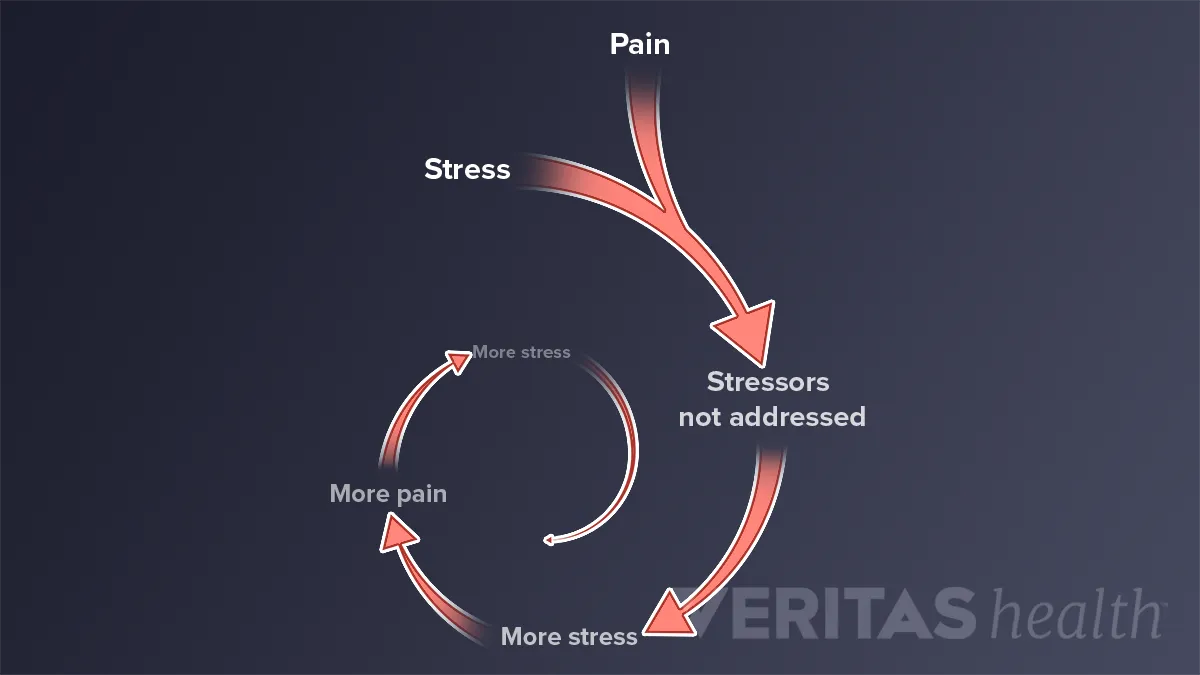

Understanding the link between stress and persistent back aches is crucial for effective management. Imagine experiencing a relentless, nagging pain that just won’t subside. This persistent back pain can disrupt your daily life, making simple tasks feel overwhelming. Stress, an often-overlooked factor, frequently plays a significant role. This article explores the intricate connection between stress and persistent back aches, providing actionable strategies to address both. We will delve into the physiological mechanisms behind this connection and examine practical solutions for pain relief and stress reduction, culminating in a comprehensive understanding of how to reclaim your well-being. We will cover topics from stress management to physical therapy.
The Physiological Impact of Stress on the Body
Stress, whether stemming from daily pressures or major life events, triggers a cascade of physiological responses. Your body releases hormones like cortisol and adrenaline, preparing you for immediate action. While helpful in short bursts, chronic stress leads to heightened muscle tension and increased inflammation. This heightened state of alert often results in tension in the muscles supporting your back, including those deep within your spine and surrounding areas. Chronic muscle tension can strain joints and ligaments in the spine, leading to persistent back pain. Further, the increased inflammation may contribute to irritation of spinal nerves, exacerbating the pain.
Recognizing the Symptoms of Stress-Induced Back Pain
Stress-related back pain often manifests in various ways. Common indicators include aching muscles in the back, neck, and shoulders. The pain can be described as dull, throbbing, or sharp, and may radiate to other areas of the body. Stress can also lead to stiffness, limited range of motion, and difficulty with daily activities. Individuals may also experience sleep disturbances and mood changes. It’s important to recognize these patterns, as early intervention can significantly improve outcomes.
Related Post : Daily Habits That Secretly Worsen Your Back Pain
Stress Management Techniques for Persistent Back Pain Relief
Fortunately, various stress management techniques can offer significant relief from persistent back pain. Mindfulness practices, such as meditation and deep breathing exercises, can help calm the nervous system, reducing muscle tension and inflammation. Regular exercise, especially activities like yoga and stretching, can increase flexibility and strengthen the muscles supporting the spine. Adopting healthy coping mechanisms, such as journaling, spending time in nature, or pursuing hobbies, can provide a valuable outlet for stress and improve mental well-being.
Understanding the Correlation between Posture and Back Pain
Poor posture can contribute significantly to chronic back pain, especially in conjunction with stress. Maintaining good posture involves aligning your body’s center of gravity with your spine’s natural curvature. Poor posture places excessive strain on the muscles and ligaments of the back, leading to pain and stiffness. Many individuals develop poor posture habits due to prolonged periods of sitting or improper lifting techniques. Adopting awareness and implementing strategies to correct posture are crucial in mitigating stress-induced back pain. Implementing ergonomic adjustments at work and home can significantly reduce the strain on your spine.
Seeking Professional Guidance for Back Pain Management
If persistent back pain persists despite implementing self-care strategies, consulting a healthcare professional is essential. A doctor or physical therapist can assess the root cause of the pain and develop a personalized treatment plan. This may involve physical therapy, medication, or other interventions tailored to individual needs. Regular follow-up appointments and a collaborative approach with healthcare professionals are crucial for effective pain management and recovery.
How can I effectively manage stress to reduce back pain?
Effective stress management involves a multifaceted approach. Practicing mindfulness through meditation or deep breathing exercises can calm the mind and body. Establishing a healthy routine that incorporates regular exercise and sufficient sleep can also contribute significantly to stress reduction. Identifying and addressing underlying stressors in daily life is equally important. Consider seeking professional guidance for tailored strategies specific to your individual needs.
What kind of physical therapy exercises can help alleviate stress-related back pain?
Physical therapists can guide you through a range of exercises designed to strengthen the muscles supporting your spine. These exercises can improve posture, increase flexibility, and promote overall spinal health, reducing the likelihood of stress-related back pain. Specific exercises can be tailored to address any existing injuries or conditions.
How can I maintain good posture to prevent future episodes of back pain?
Maintaining good posture involves awareness and consistent effort. Using good posture techniques, including sitting upright with your back supported, and maintaining a balanced stance when standing can make a significant difference. Consider making posture adjustments in your daily activities to mitigate potential causes of stress-induced back pain.
What are some healthy ways to cope with stress?
Healthy coping mechanisms are essential for managing stress. Engaging in regular physical activity, such as yoga or brisk walks, is beneficial for stress reduction. Pursuing hobbies and spending time in nature can also provide respite and promote mental well-being. It is crucial to find stress management strategies that work best for you.
In conclusion, understanding the intricate link between stress and persistent back pain is crucial for effective management. Stress, in its various forms, can significantly impact the musculoskeletal system, potentially leading to chronic pain. By addressing the root causes of stress through mindfulness, healthy coping mechanisms, and seeking professional help, individuals can effectively manage their stress levels and alleviate back pain. Implementing strategies to improve posture, engage in regular exercise, and maintain a balanced diet can further support overall well-being and reduce the risk of future episodes. Remember, persistent back pain deserves attention. Consulting a healthcare professional for a proper diagnosis and personalized treatment plan is paramount.